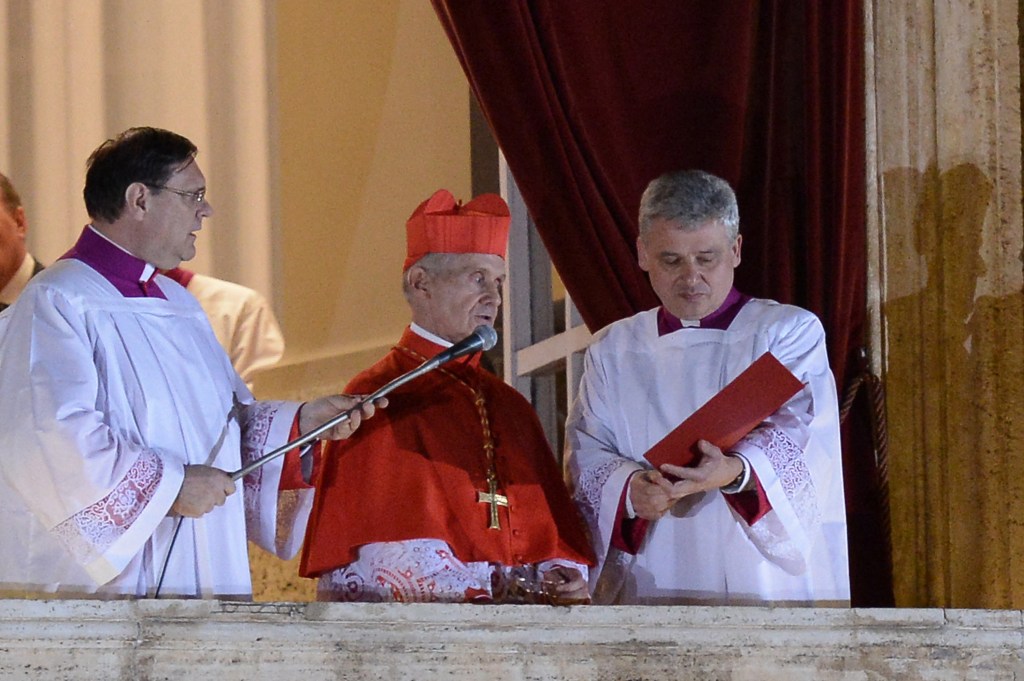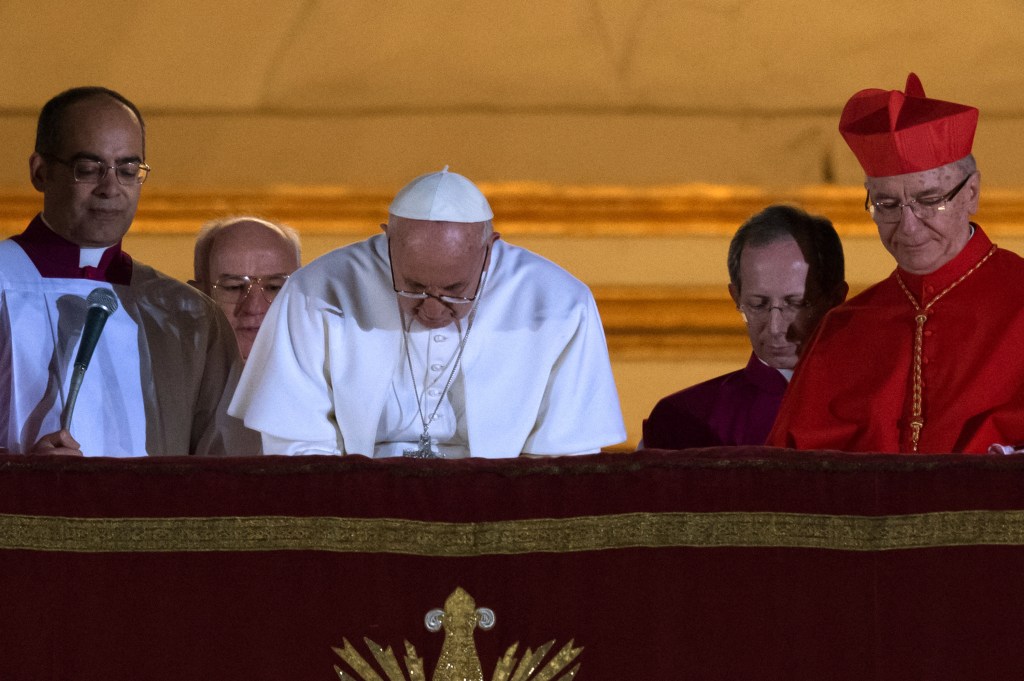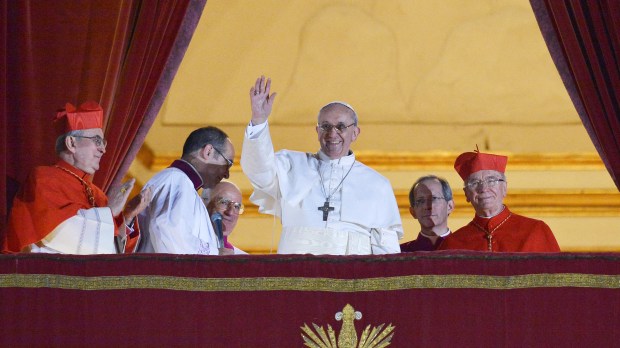“You know that it was the duty of the Conclave to give Rome a Bishop. It seems that my brother Cardinals have gone to the ends of the earth to get one…” On March 13, 2013, the brand new pope appears on the balcony of the facade of St. Peter’s Basilica and says these words. His name is Jorge Mario Bergoglio, he’s Argentinian, and his simplicity immediately touches the hundreds of thousands of people gathered on this rainy day, which will be remembered as the day of the election of the 266th pope.
Since the departure of Benedict XVI on the evening of February 28, the Seat has been vacant and the Catholic Church has been waiting for a new Successor to Peter. The papal apartments are sealed. The 115 cardinal electors have come from all over the world, met in their congregations, and solemnly entered into conclave on March 12.
For several weeks now, some 6,000 journalists from 76 countries and 26 languages who have come to the Eternal City to cover the event have been speculating, drawing up their list of “papabili” – ignoring the time-honored line of wisdom that “whoever enters the conclave as the pope comes out a cardinal.”
On this Wednesday, the second day of the conclave, there’s no word from Domus Sanctae Marthae or from the Sistine Chapel where the prelates must vote to reach a consensus on a candidate. All we know is that their first vote, on the afternoon of March 12, ended with black smoke billowing from the Sistine Chapel’s famous chimney, the cardinals’ only means of communication with the outside world.
The morning passes. At 11:39 a.m., before the eyes of many pilgrims and onlookers, a new cloud of black smoke comes out. No pope. According to Vatican expert Gerard O’Connell, who published a minute account of the election, this black smoke illustrated the results of the second and third rounds of voting. In the afternoon, the journalist reported, the prelates met again for a fourth vote. Then a 5th vote had to be declared null and void, due to an error in the ballot. It was the sixth vote that elected Bergoglio, with 85 votes.
Outside, all this remains unknown. The hours tick away; a cold and wet night falls. A seagull is in the news, perched for a long time on the chimney of the Sistine Chapel where all eyes are riveted. A sign of the Holy Spirit? Will it fly away in time to avoid being enveloped by the smoke? The bird occupies the time while the crowd thickens. Here and there, the faithful are convinced: It will be tonight. Some have been standing since the morning, leaning against the barriers.
7:06 p.m. The crowd holds its breath, concentrates, sees, and is moved … the smoke is white! The news, acclaimed by a wild hurrah, triggers the interruption of countless television programs to follow the live appearance of the new successor of Peter. Habemus papam… by word of mouth, from echo to echo, the news spreads and the city rushes to the foot of the basilica, massing on the Via della Conciliazione, filling the side streets.
But the identity of the new pope is still unknown. In the meantime, on the airwaves and in the square, people are commenting, hoping and praying. In front of the cameras, young people from the San Lorenzo Center, located a few steps away, unfold a large banner in the front row. We wait. Only 66 minutes later, the proto-deacon, Cardinal Jean-Louis Tauran, appears at 8:12 pm. His voice resounds, trembling with emotion, in the loudspeakers, stating the famous Latin formula:
Annuntio vobis gaudium magnum, habemus papam
Eminentissimum ac reverendissimum Dominum, Dominum Georgium Marium Romanae Ecclesiae Cardinalem Bergoglio, qui sibi nomen imposuit Franciscum.

Who? Bergoglio? Other names, such as Ouellet or O’Malley, Sherer, or Turkson, have circulated. But who is Bergoglio? A few words are circulating: Latin America. Argentina. Jesuit.
It doesn’t matter; judging by the happy faces, the crowd has already adopted him. His face will appear at 8:22 p.m., before 250,000 people and cameras from all over the world. Francis is flanked not only by the dean of the College of Cardinals and the master of papal ceremonies, as is customary, but also by his friend Cardinal Hummes and the vicar for the diocese of Rome, Cardinal Vallini. Dressed in a simple white cassock without the traditional mozzetta, his style contrasts with that of his predecessors.
He immediately wins the sympathy of the people. Smiling, the man in white invites the Church of Rome to begin “a journey of fraternity, of love, of trust among us. Let us always pray for one another. Let us pray for the whole world, that there may be a great spirit of fraternity,” the 76-year-old Argentinean says.

And the Pontiff makes an unexpected gesture: Before giving his blessing, he bows, imploring “a favor. ” I ask you to pray to the Lord that he will bless me: the prayer of the people asking the blessing for their Bishop.”
Touched, struck, the faithful recollect themselves. For about fifteen seconds, a deep silence descends on this historic evening.
“Good night and sleep well,” concludes the Pontiff after blessing Rome and the world. After the last applause, everyone goes home, while a light is turned on in the Vatican. The Seat of Peter is now occupied.

